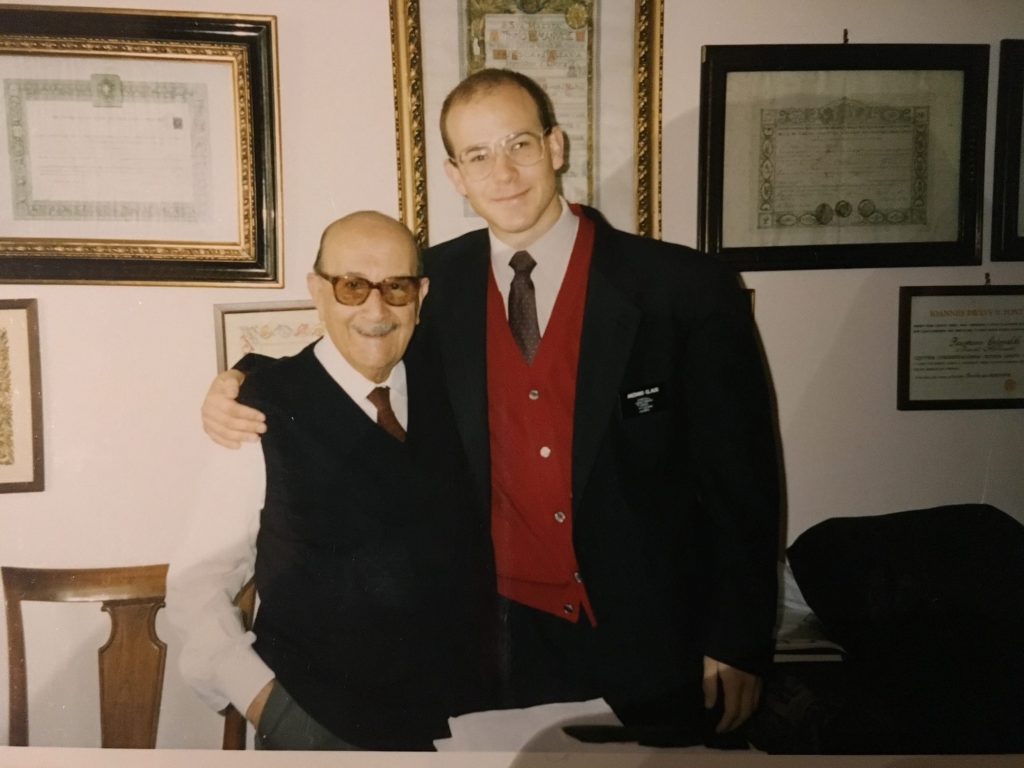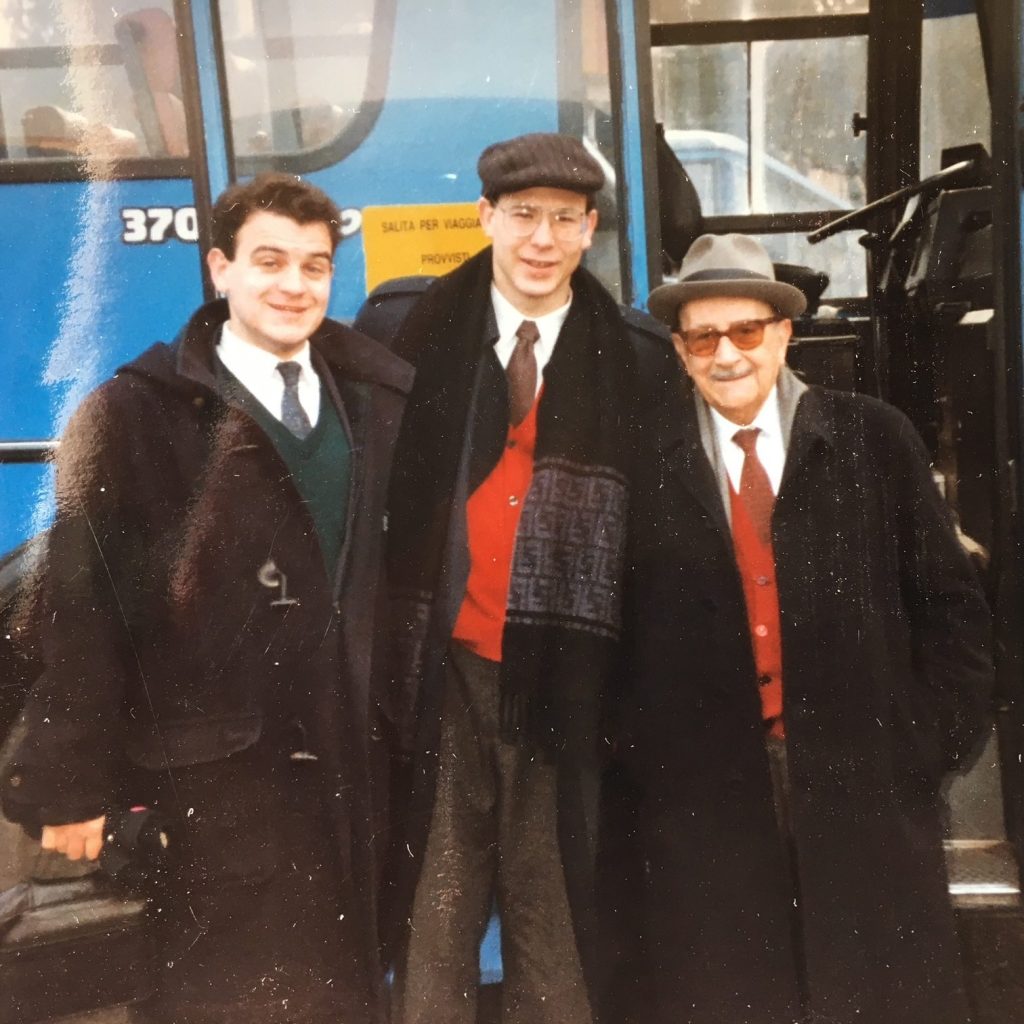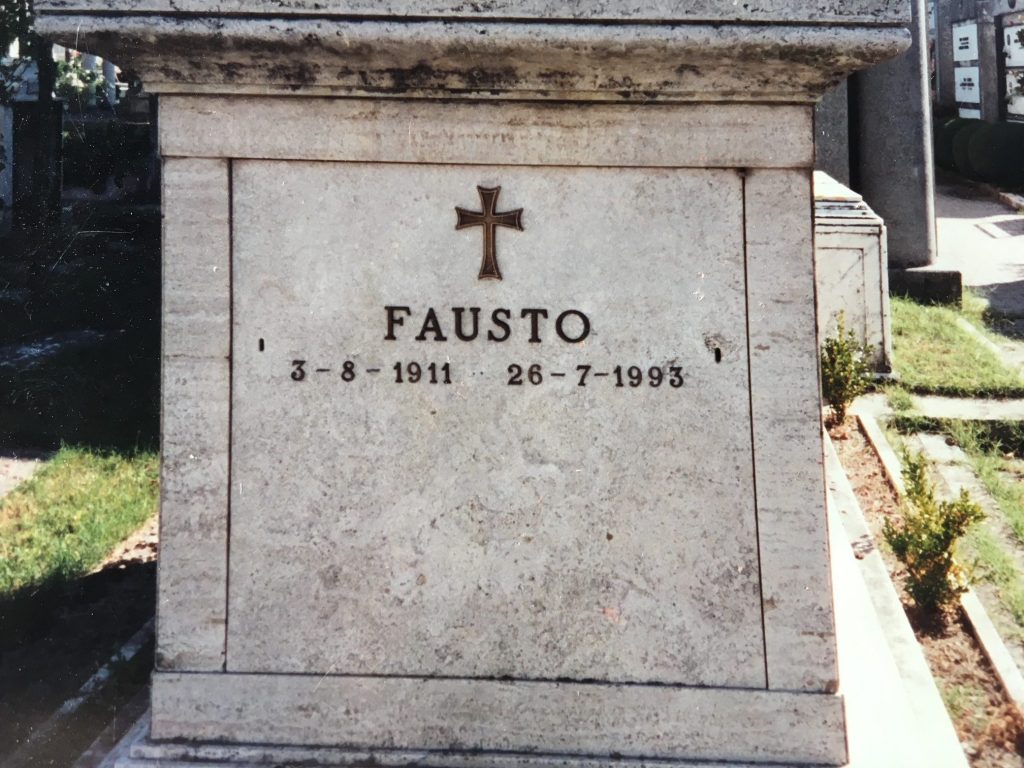Those of you who know me well have heard the story about how Columbia University lured me away from the green mountains of North Carolina where I had already accepted a prestigious Ph.D. fellowship. Columbia did this by dangling Umberto Eco and Fischer Black out to me. You see, I had spent two years in Italy studying with one of Benedetto Croce‘s last students, my great mentor Fausto Grimaldi who taught me in a way that some say goes back to the ancient Greeks. At the time Columbia was recruiting me to their business school, the Italian department was starting a project that became the Digital Dante and the great semiotician Umberto Eco was coming to campus to work with them. I was assured that in my “time off,” I could work with Eco, completing work I began with Fausto in Italy. Then once in New York, literally weeks before he was to arrive, Eco cancelled. I was crestfallen, and if that wasn’t bad enough weeks later Fischer Black died. In other words, the two reasons I had come to New York City were gone.

Opportunities in Crisis
As I pined for the green hills of North Carolina (and the legendary companies such as SAS and Quintiles that I would have worked with), new opportunities arose in New York City. I was a faculty member in the Valuation Program, and that pulled me into numerous interesting consulting projects with groups such as Morgan Stanley, the New York Stock Exchange, and Ziff Brothers. Then other interesting opportunities arose, like advising Kozy Boren on his investment in NeXT Computer as it was acquired by Apple and on the funding on SNL Financial’s restructuring as it faced the fallout of the Savings and Loan Industry collapse. I’ve previously written that the right advice with Kozy at the right time funded my lab in New York, but the SNL project was a bit different. I’d been hired as the personal tutor for Nick Veronis as he came into his dad’s company and his first big deal was SNL Financial…and it was a heck of a deal!
You see SNL Financial as its name implies, supplied data and analytics to the Savings and Loan industry and with the industry’s collapse, SNL had no clients or cash flow. The team was led by a strong CEO who despite losing all his clients, he said the technology was worth tons and so was the team and he wouldn’t bend on control. Nick’s dad, had a strict policy at Veronis and Suhler that they took control investments and this would be a big deviation for the boss’ son on his first deal.
It was a bold move, bucking his father’s historical way of doing deals, so Nick turned to me for advice. I urged the deal saying it would be a homerun just due to the technology, pointing out that the tech stack could be used for banks, insurance or any type of industry specific data and with it SNL could pose a credible threat and even beat S&P at its own game. SNL not only had good technology, they had an excellent team and strong founder, which Nick thought of as an asset, not a liability. It was a hard fight, and Nick bucked history arguing that the strong founder and team would deliver stronger results if they were allowed to maintain control and the deal was done.
Fast forward to 2015, almost twenty years later. If Veronis and Suhler had let their money ride, it would have been roughly a 35% annual compounded rate for almost twenty years! That kind of return turns an investment of a few million dollars into a billion! That is the kind of investment that Warren Buffett says you find once or twice in your life and you will be extremely wealthy if you invest in them. Both cases show, it’s about the tech, team, and leadership…all the other good investments are singles and at best doubles, waiting for those rare bets when those three things align which are bases loaded homeruns out of the park!
Resistance and Reward
Now for a few words on the unexpected rewards we find is the face of resistance like I found in New York. Sure in the case of Apple or SNL Securities, the financial reward was immense, but what I’ve found is that often the greatest rewards have come from the relationships. Working with the people that I love, working on a project that I love, and making a difference. The ULISSES Project and our objective to change the investment industry is like that.

When my great teacher Fausto Grimaldi first told me that he wanted me to be his student, I turned him down. I had gone to Italy to do other things as a missionary, to preach to people, but when Fausto spoke to my leaders and told them he would help my church in Italy if I studied with him, the decision was made. My leaders argued that I would do more for my church studying with Fausto than knocking on doors or preaching in piazzas. I reluctantly obeyed and went on to have one of the greatest experiences of my life. Fausto became a father to me. He showed me the wonders of Italy and I continue his tradition of service to this day, an adopted Grimaldi.
Sometimes we find paths, but other times they find us as we walk forward with purpose. In many ways my work with the ULISSES Project is a commitment I made to my Italian dad so many years ago and in that way, his influence continues on in this world.


